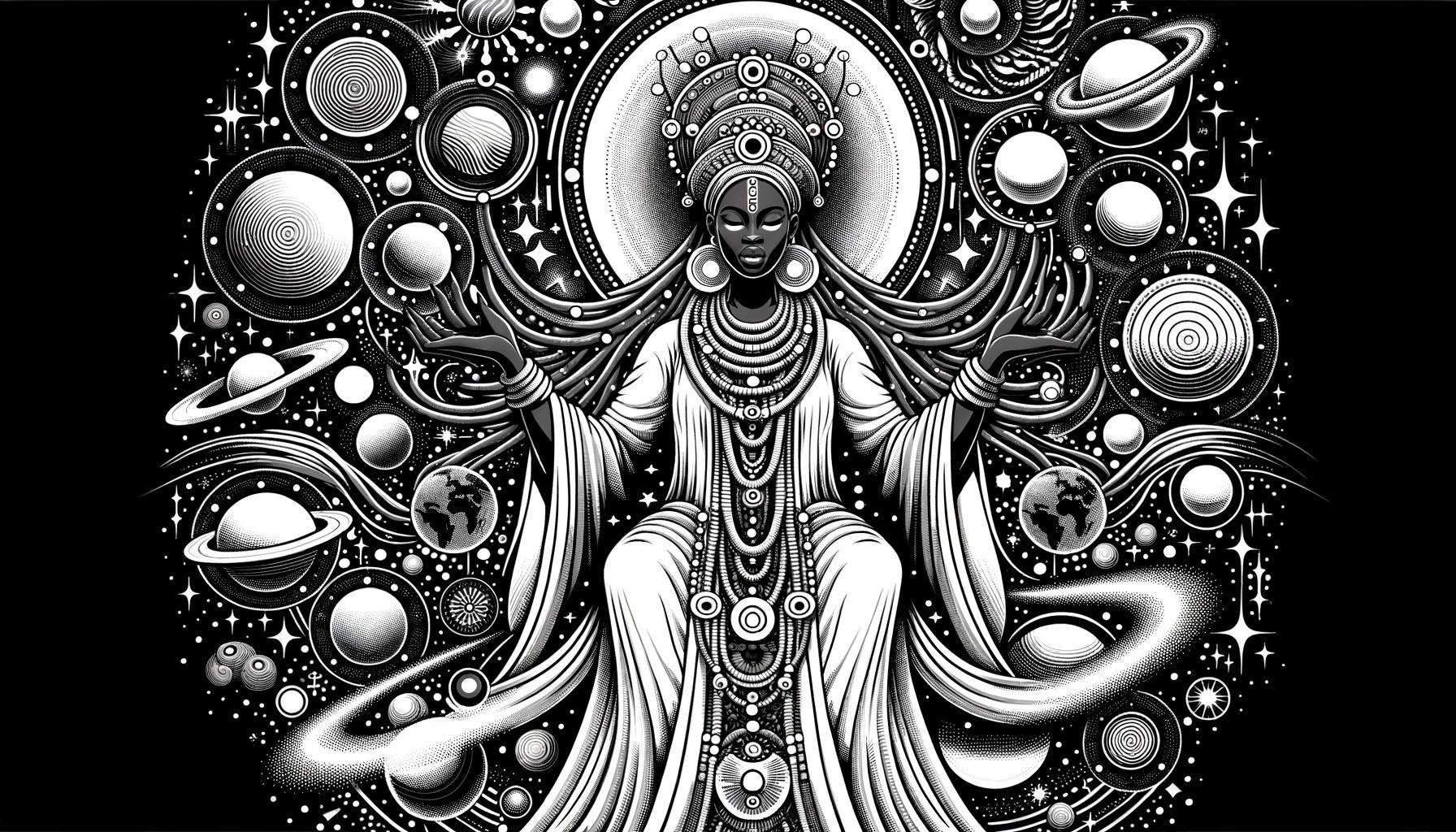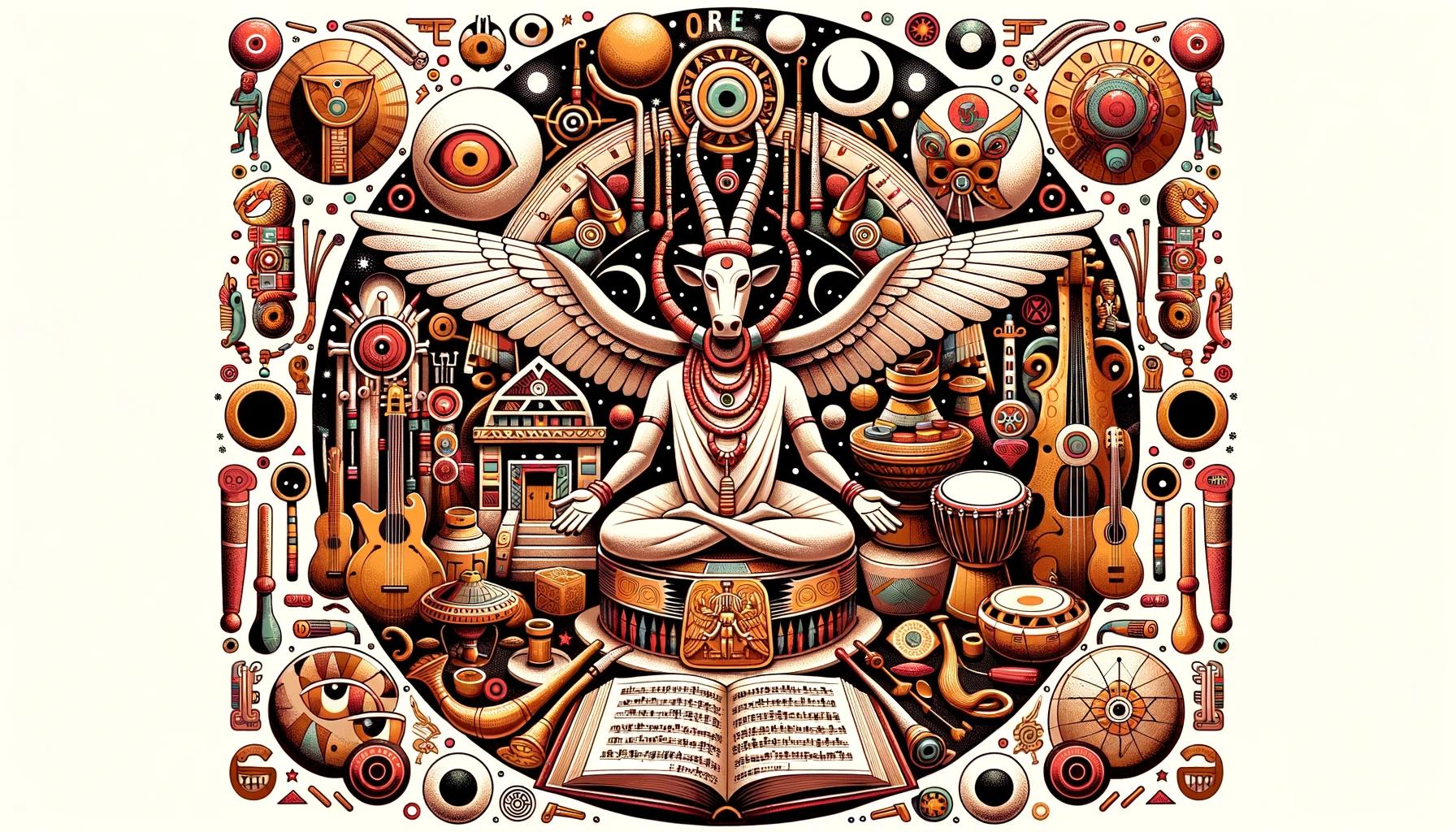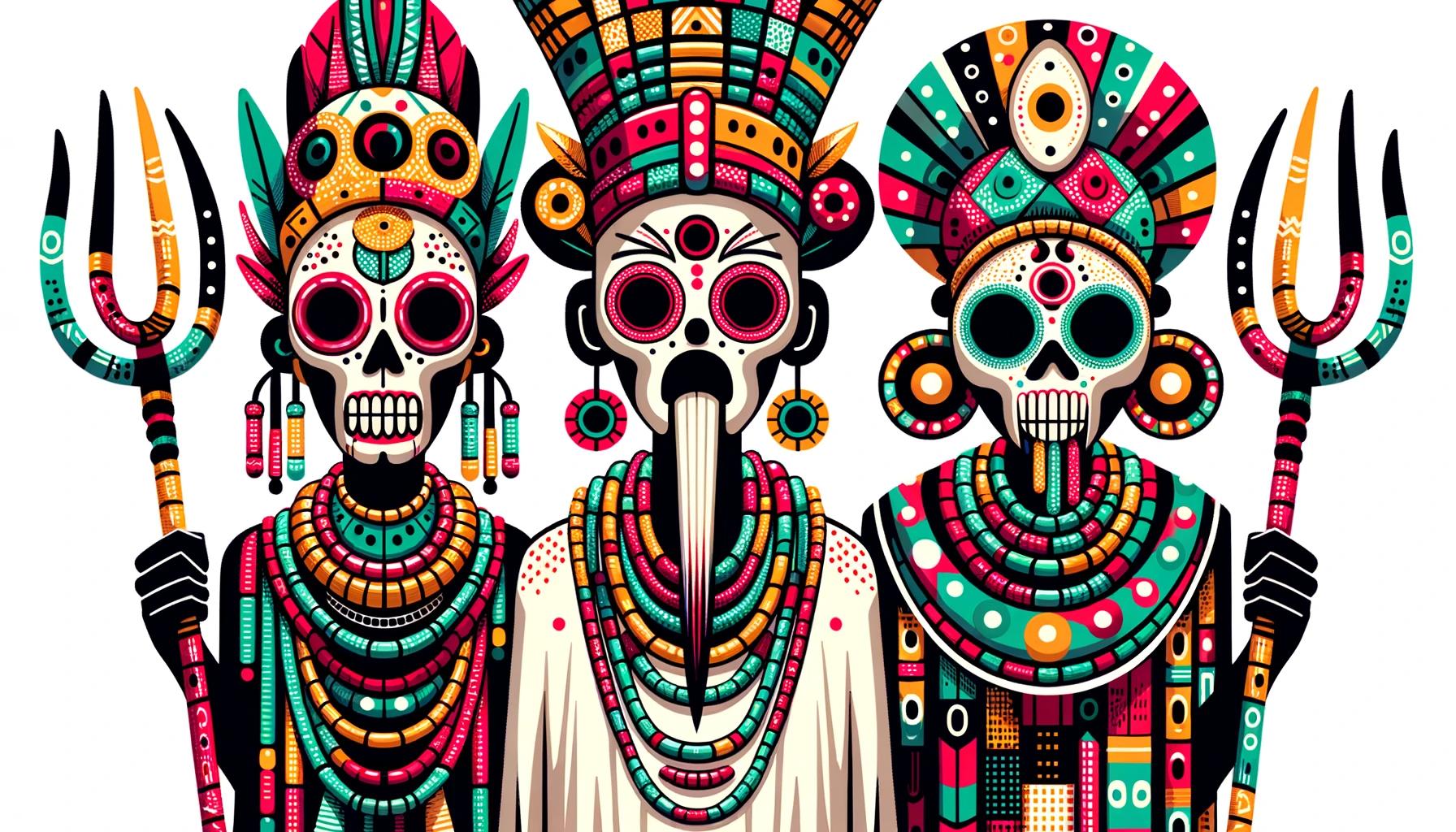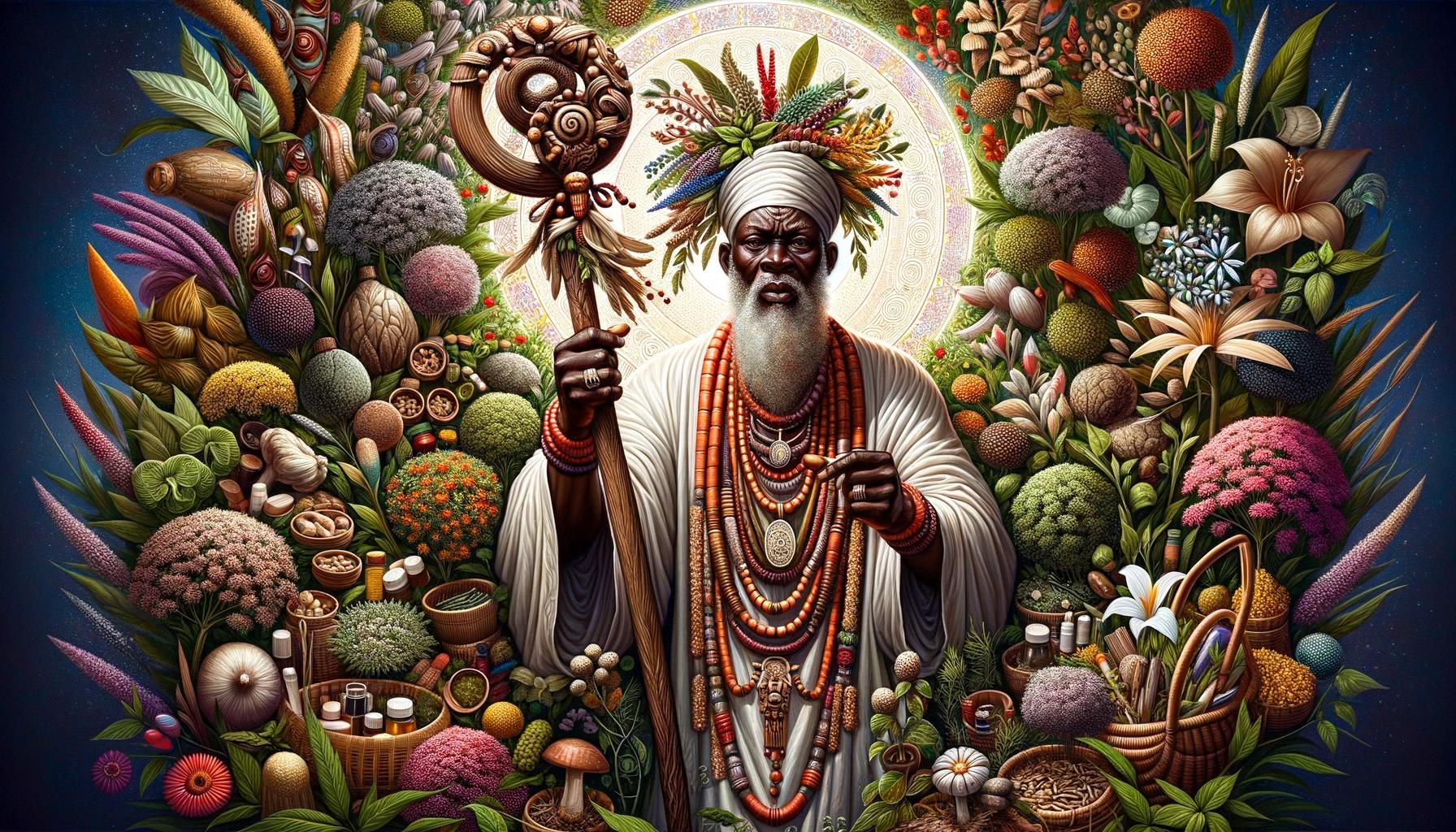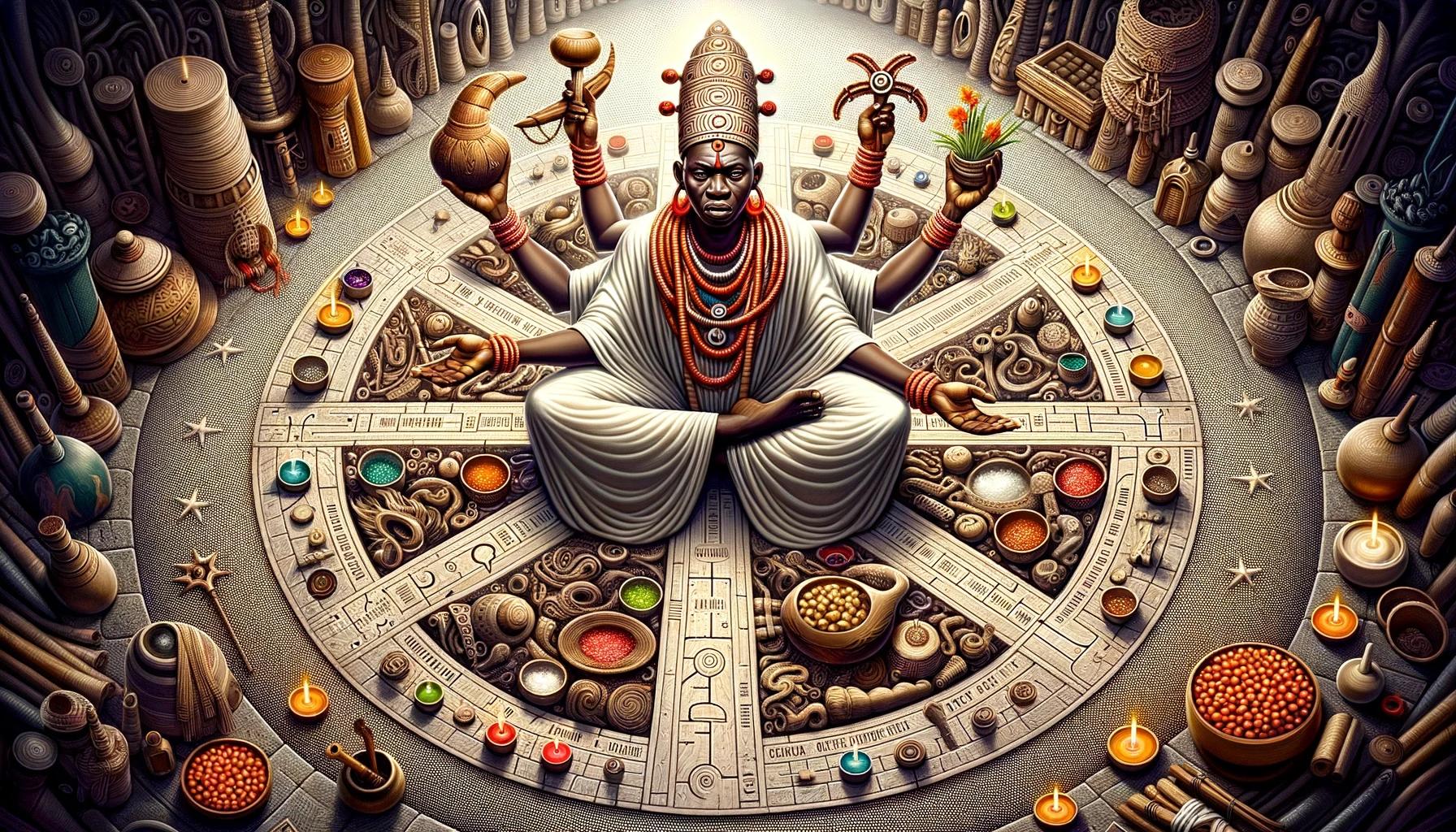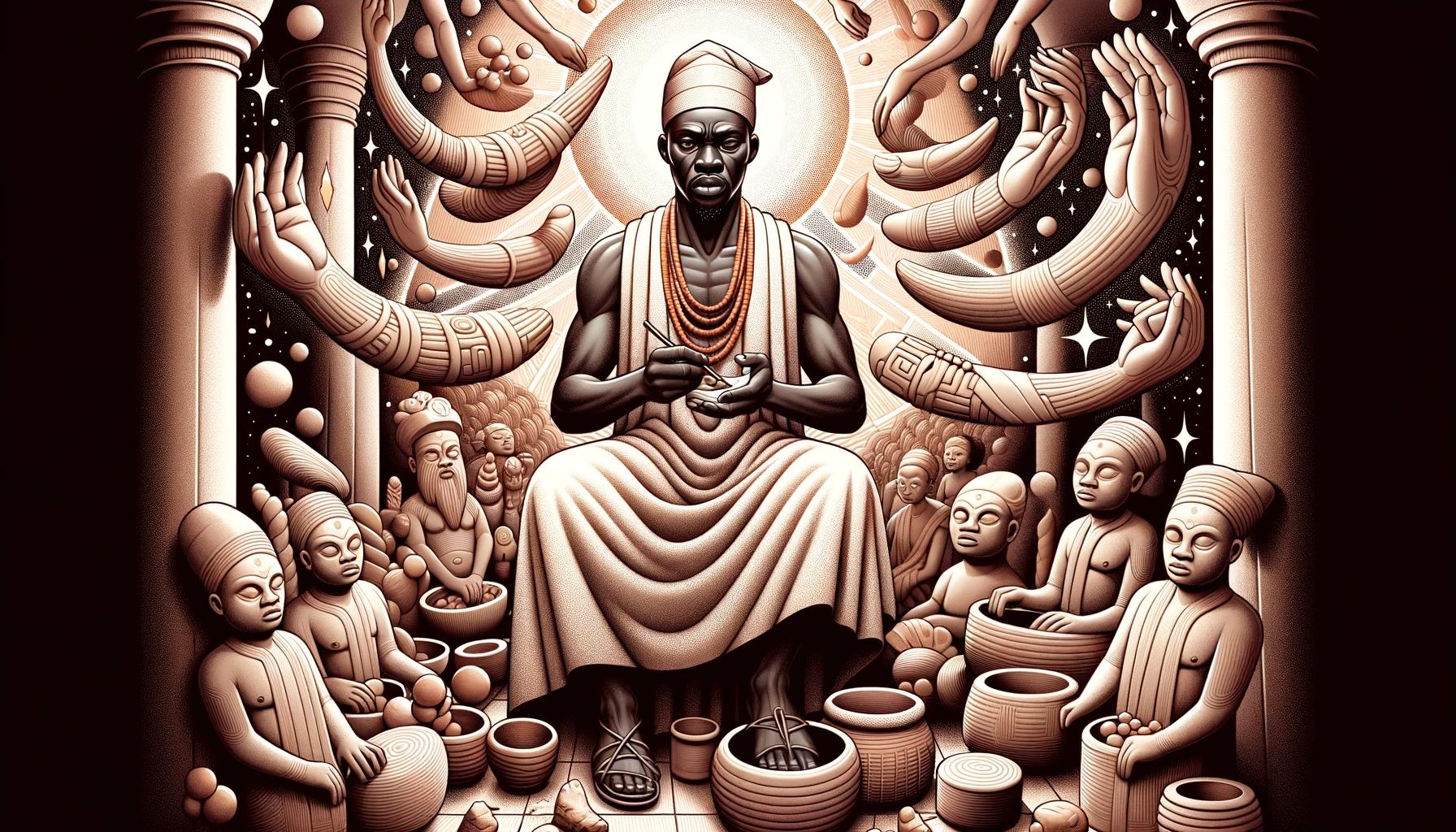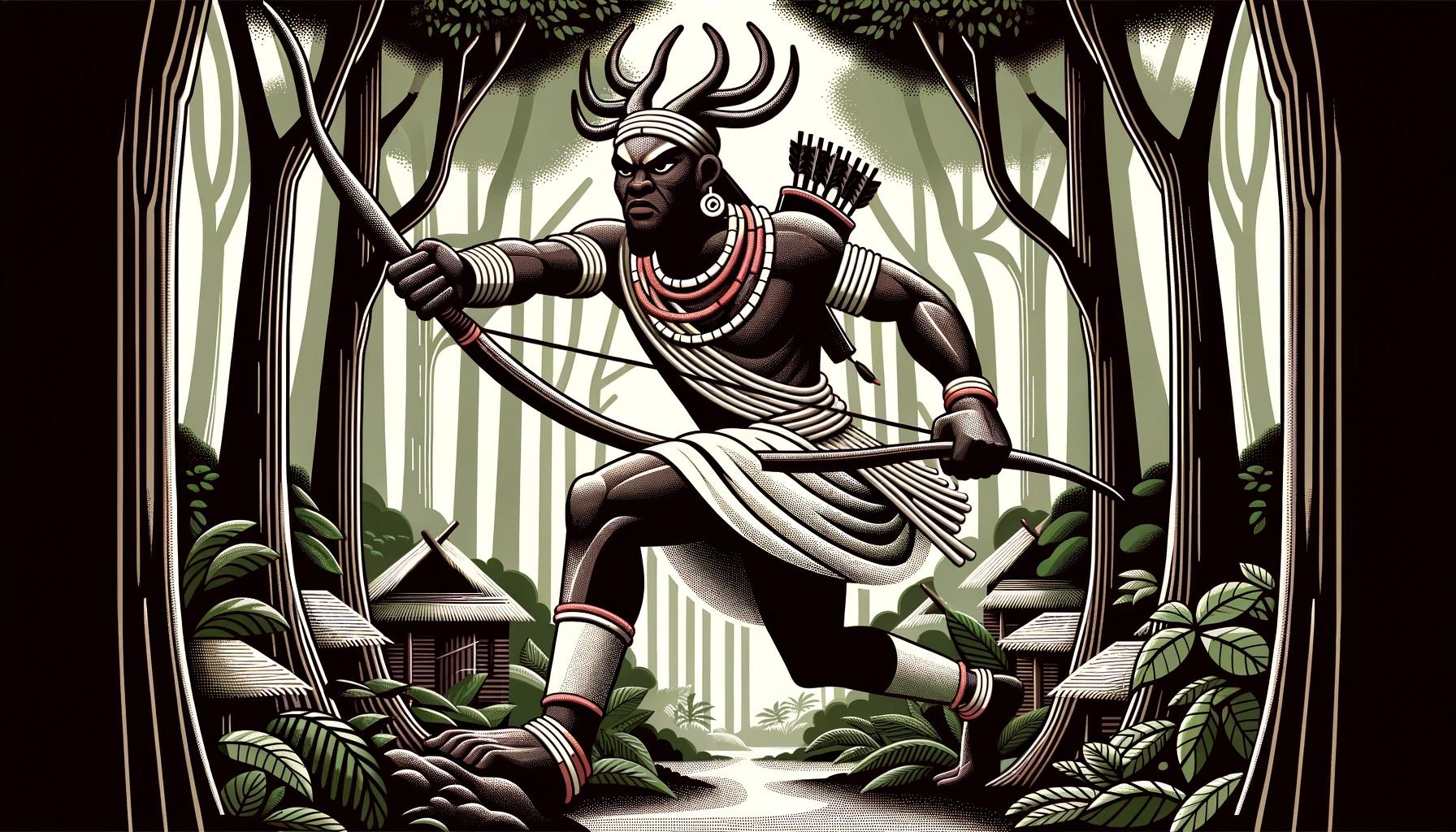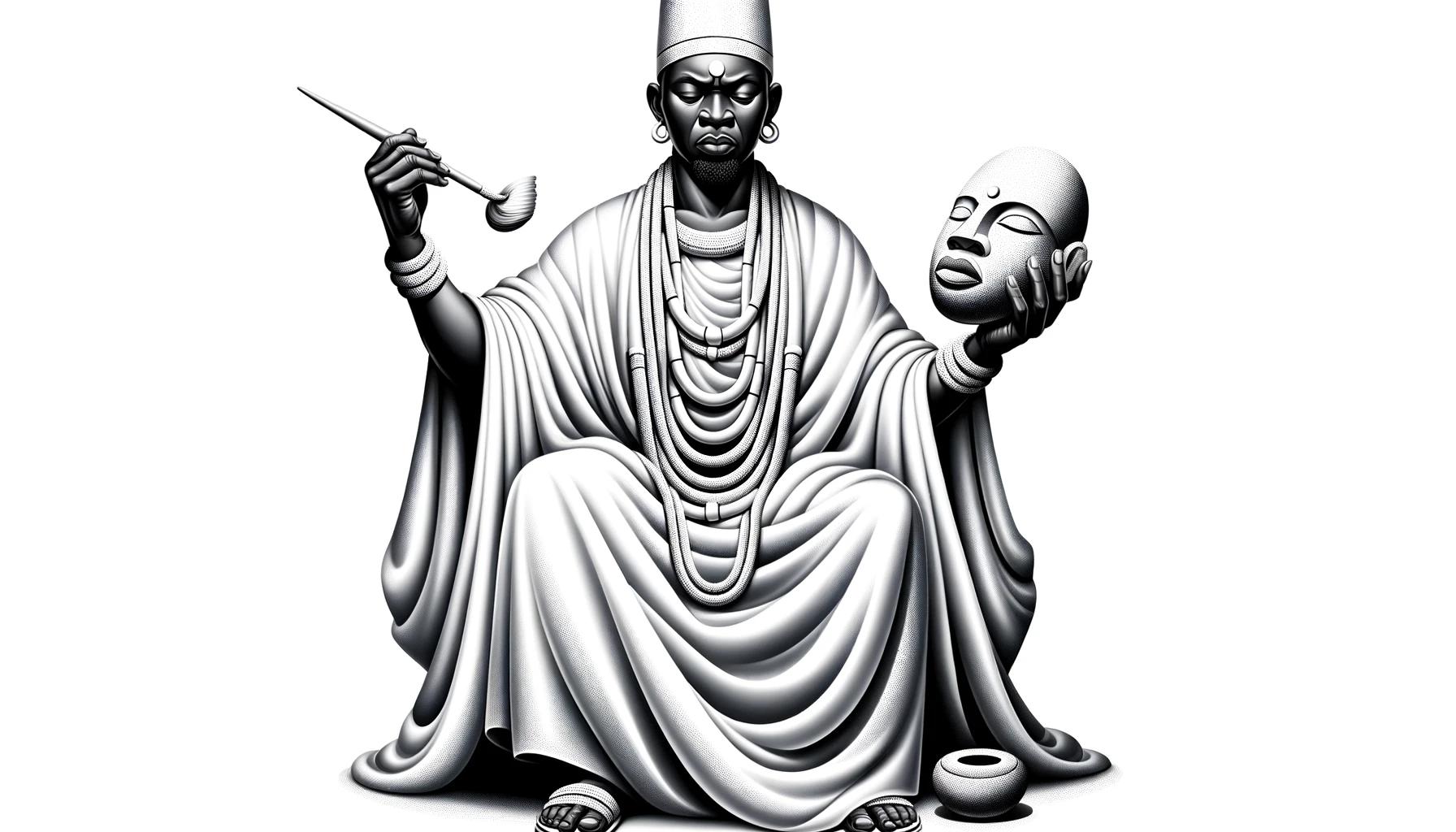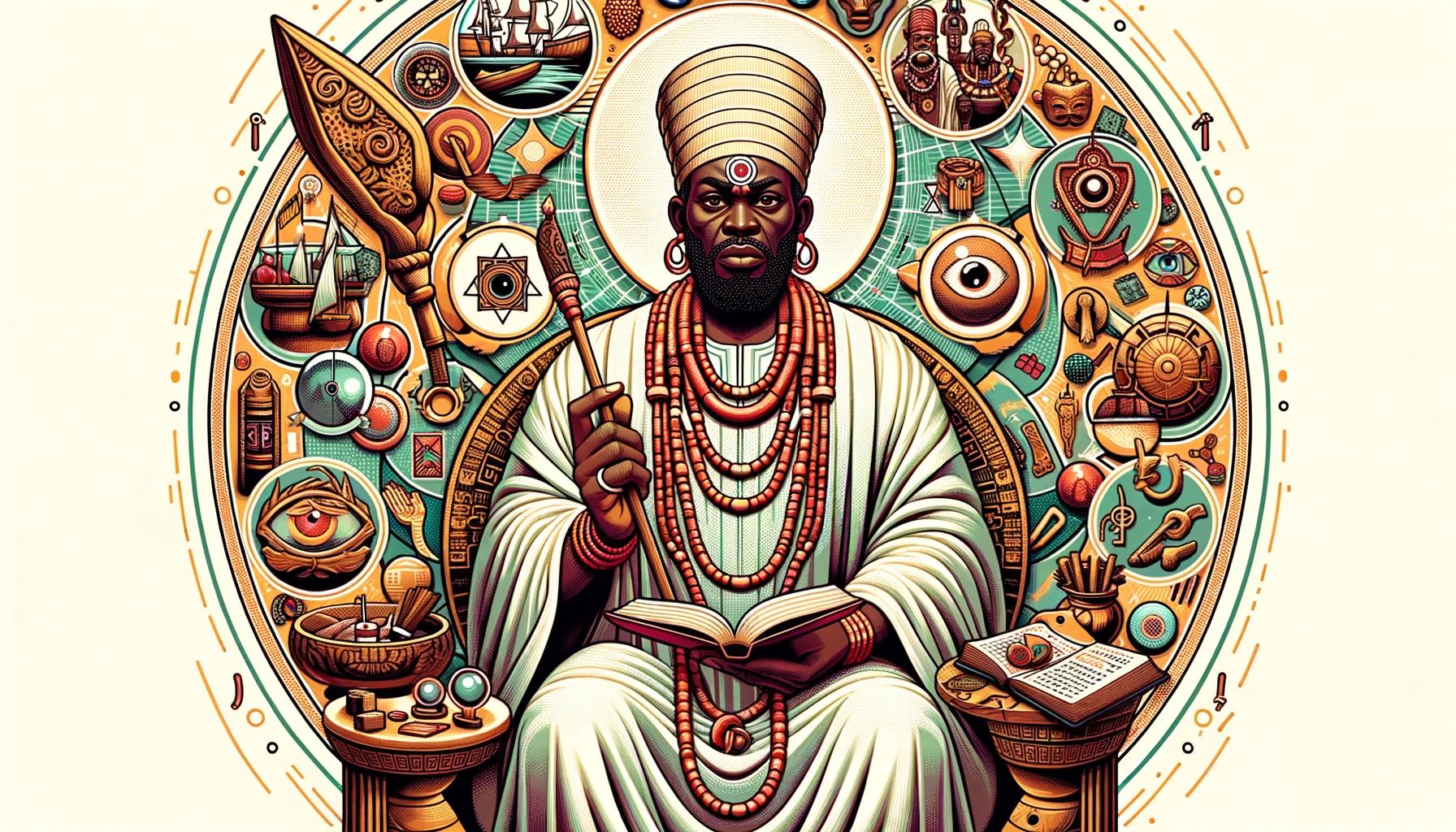Nana Buluku Goddess: Exploring the Mystical Power and Influence of African Mythology in the US
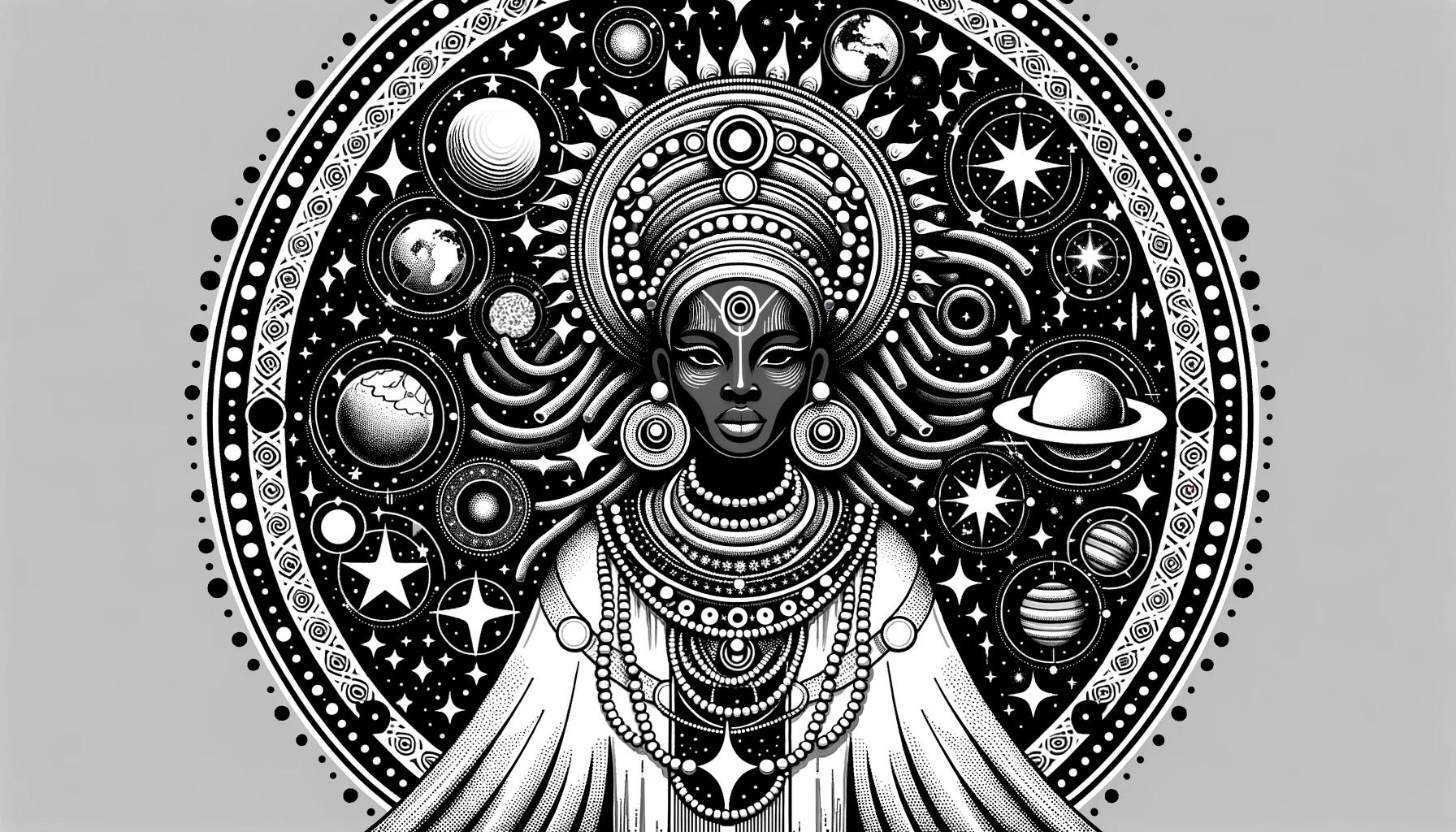
Nana Buluku Goddess is a revered deity in African mythology and holds significant importance in Fon and Yoruba religions. As the mother of the sun and the moon, Nana Buluku’s role spans from cosmic creation to guiding the souls of the deceased.
She is depicted in various forms of art and media, illustrating her enduring presence across cultures. Furthermore, Nana Buluku’s worship extends beyond Africa, reaching the Caribbean and Afro-American traditions. Explore the mythical origins, cultural significance, and global influence of Nana Buluku in this comprehensive article on African mythology.
African Mythology and the Nana Buluku Goddess
African mythology is rich with fascinating tales, rituals, and deities that hold significant cultural and spiritual importance. One such deity is Nana Buluku, revered in various African religions for her cosmic influence and maternal role.
This section provides an insight into the background of African traditional religion, an overview of Nana Buluku, and explores the importance she holds within African culture.
Background of African Traditional Religion
African traditional religion encompasses a diverse range of belief systems practiced across the continent.
It reflects the spiritual connection between humans and the natural world, emphasizing ancestor veneration, animism, and honoring various deities. These traditions have deep historical roots and continue to shape the lives of many Africans today.
Overview of Nana Buluku
Nana Buluku stands as a prominent deity in African mythology, particularly in the Fon and Yoruba religions. She holds the title of the mother of the sun and the moon, symbolizing her role in cosmic creation.
Nana Buluku is often depicted as a powerful and nurturing figure, embodying both life and death.
Importance of Nana Buluku in African Culture
Nana Buluku holds significant cultural importance within African traditions. She is revered as a primal force, representing the ultimate source of life and creation. Nana Buluku’s influence extends beyond her cosmic role, as she is also associated with fertility, protection, and the journey of souls after death.
Her worship and mythology contribute to the cultural fabric and spiritual tapestry of African communities.
The Role of Nana Buluku in Fon and Yoruba Religion
Nana Buluku plays a significant role in both Fon and Yoruba religions. Her influence and symbolism are deeply ingrained within the cultural fabric of these African traditions.
Nana Buluku in Fon Religion
In Fon religion, Nana Buluku holds a revered position as the mother of Mawu (the moon) and Lisa (the sun), the divine twins.
She is considered the primordial creator of the universe and the source of all life. Nana Buluku’s nurturing and protective nature extends to her role as the mother of all the orishas, the divine spirits worshipped in Fon religion.
Nana Buluku in Yoruba Religion
In Yoruba religion, Nana Buluku is known as the grandmother of all Orishas, the deities worshipped in the Yoruba pantheon. She is revered as a powerful and wise deity who played a significant role in the creation of humanity.
Nana Buluku is associated with fertility, motherhood, and the ancestral lineages. She serves as a guide for the deceased souls on their journey to the afterlife.
Connections between Nana Buluku and Other Deities
Nana Buluku is intricately linked to various other deities in both Fon and Yoruba religions.
In Fon religion, she is closely associated with Mawu-Lisa, the divine twins who represent the harmonious balance of the cosmic forces. In Yoruba religion, she shares connections with Orishas like Obatala, the creator deity, and Olokun, the ruler of the depths of the ocean.
These interconnections highlight the complex and intertwined nature of the African pantheon.
Creation and Power of Nana Buluku
Nana Buluku, the revered deity in African mythology, holds a prominent role as the creator of the universe, encompassing both cosmic and earthly realms. Let’s delve into the various aspects of her creation and explore her enduring power and influence.
Nana Buluku as the Creator of the Universe
In African mythology, Nana Buluku is attributed with the primary role of creating the universe and all that exists within it. She is believed to have brought forth the sun, the moon, and all living beings.
This divine act of creation establishes Nana Buluku as the supreme mother figure in many African cultures.
Mythological Stories and Symbolism Surrounding Nana Buluku
Mythological tales surrounding Nana Buluku often depict her as a powerful being who birthed her twin children, Mawu and Lisa, and then withdrew from the heavens. In some interpretations, she is symbolically represented as the primordial serpent Maj, showcasing her transformative abilities.
These stories convey her wisdom, strength, and primal connection to the elements.
Influence and Worship of Nana Buluku in Modern Times
The influence of Nana Buluku extends far beyond ancient beliefs, persisting in modern African cultures and diaspora religions. Her worship continues to be an integral part of Fon and Yoruba traditions, with devotees seeking her guidance and protection.
The reverence for Nana Buluku has also transcended borders, reaching Caribbean nations such as Haiti and Suriname, as well as Afro-American communities in France and the Netherlands.
Today, ceremonies and rituals dedicated to Nana Buluku honor her as the divine source of life and the guardian of souls.
Her name is invoked in prayers, songs, and dances, reaffirming the eternal significance of her creation and power.
Nana Buluku in Different Cultural Expressions
Nana Buluku, the revered African deity, has left a lasting impact on various forms of artistic and cultural expression. Her representation in literature, art, popular culture, and media showcases the influence and persistence of her figure across time and different societies.
Nana Buluku in Literature and Art
In literary works, Nana Buluku is often depicted as a powerful goddess of life and death, embodying both creation and destruction. Authors draw inspiration from her mythical origins and her role as a mother creator.
Her presence serves as a source of inspiration and adds depth to narratives exploring themes of spirituality, transformation, and African mythology.
Artists, on the other hand, have captured Nana Buluku’s essence through various mediums such as paintings, sculptures, and illustrations.
They aim to convey her power, wisdom, and connection to nature. Her depiction often showcases vibrant colors and intricate details, reflecting the richness of African culture and mythology.
Nana Buluku in Popular Culture and Media
Nana Buluku’s influence extends to popular culture and media, where her character and symbolism have been incorporated into films, television shows, and music.
She serves as a source of inspiration for storytellers and filmmakers, bringing diverse representations of African spirituality and culture to a wider audience.
Her embodiment in popular culture often reflects her power, strength, and connection to ancestral wisdom.
Nana Buluku’s character contributes to narratives that explore themes of identity, liberation, and the reclamation of African heritage.
Global Influence and Veneration of Nana Buluku
Nana Buluku’s worship and veneration have transcended the boundaries of Africa. Her influence can be found in the Caribbean, particularly in Haitian and Surinamese traditions, where her cult survived despite the transatlantic slave trade’s hardships.
Moreover, communities of African descent in France and the Netherlands also maintain her worship. Nana Buluku’s global presence showcases her enduring importance and the resilience of African spirituality and cultural practices throughout history.
- Her representation in various cultural expressions reflects her widespread influence and appeal.
- Nana Buluku’s character serves as a bridge between different artistic forms, connecting literature, art, popular culture, and media.
- Her presence in global contexts highlights the universal nature of mythology and the enduring relevance of African traditions.
It is through these different cultural expressions that Nana Buluku’s legacy continues to thrive and inspire people worldwide, contributing to a deeper understanding and appreciation of African mythology and spirituality.
Nana Buluku in African Diaspora Religions
Nana Buluku, the revered goddess, has had a significant presence in African diaspora religions, particularly in Voodoo and Hoodoo practices. Her mythological origins and symbolism have seamlessly merged with the belief systems of the African diaspora, resulting in the adaptation of her worship in new cultural contexts.
Let’s explore her role in Voodoo and Hoodoo practices, her influence in Caribbean and Afro-American traditions, and how her worship has continued and evolved over time.
Nana Buluku in Voodoo and Hoodoo Practices
In Voodoo, Nana Buluku is revered as a primal, all-encompassing energy and a force of creation. She is often associated with the divine feminine and considered the mother of multiple deities, known as loa.
Nana Buluku’s worshippers in Voodoo believe in her immense power to heal, protect, and guide them through their spiritual journeys. Her worship involves rituals, prayers, offerings, and spirit possession ceremonies, where devotees can communicate with the loa.
Nana Buluku in Caribbean and Afro-American Traditions
Caribbean and Afro-American traditions have also embraced the significance of Nana Buluku in their religious practices. In countries like Haiti and Suriname, her worship has managed to endure centuries of cultural assimilation and oppression.
The African diaspora communities have integrated her into their spiritual belief systems, often blending her worship with other deities and practices from their ancestral traditions. Nana Buluku’s influence can be seen in rituals, ceremonies, music, dance, and even folk remedies.
Continuity and Adaptation of Nana Buluku’s Worship
As time has progressed, the worship of Nana Buluku has continued to evolve within the African diaspora. Despite facing adversity and external influences, her devotees have managed to preserve her worship, passing down rituals, stories, and knowledge through generations.
Nana Buluku’s symbolism and attributes have also adapted to reflect the unique experiences and challenges faced by the diaspora communities. This reaffirms her enduring presence and the deep spiritual connection that many maintain with her across diverse geographical locations.
FAQs about Nana Buluku Goddess and African Mythology
Who is Nana Buluku and what is her significance?
Nana Buluku is a revered deity in African mythology, particularly in Fon and Yoruba religions. She holds great significance as the mother of the sun and the moon, with a mythological role that spans from cosmic creation to guiding the souls of the deceased.
Across various African cultures, Nana Buluku represents the divine, maternal force responsible for both life and death. Her presence showcases the enduring power and influence of African mythological beliefs.
How is Nana Buluku worshipped in African religions?
Nana Buluku is worshipped in diverse ways within African religions.
In Fon religion, devotees often venerate her through rituals like chanting, singing, and dancing in her honor. Offerings of food, drinks, and symbolic items are also made to express devotion and seek her blessings.
Similarly, in Yoruba religion, Nana Buluku is honored through ceremonies, prayers, and sacrifices. Her worshippers believe in seeking her guidance and protection in various aspects of life, including fertility, health, and spiritual well-being.
What is the connection between Nana Buluku and other deities?
Nana Buluku shares connections and associations with other deities in African mythology. In Fon religion, she is considered the mother of Mawu and Lisa, who represent the moon and the sun respectively.
This familial connection highlights her role as the progenitor of cosmic forces. In Yoruba religion, Nana Buluku is recognized as the grandmother of all orishas (deities) and is believed to have influenced the ancestral origins of the Fon people.
Her presence and influence intertwine with the divine pantheon, showcasing the interconnectedness of various deities within African mythological systems.
- Nana Buluku is revered as the mother of the sun and the moon.
- Devotees worship Nana Buluku through rituals, prayers, and offerings.
- She has connections with other deities, such as Mawu and Lisa, and the orishas in different African religious traditions.

